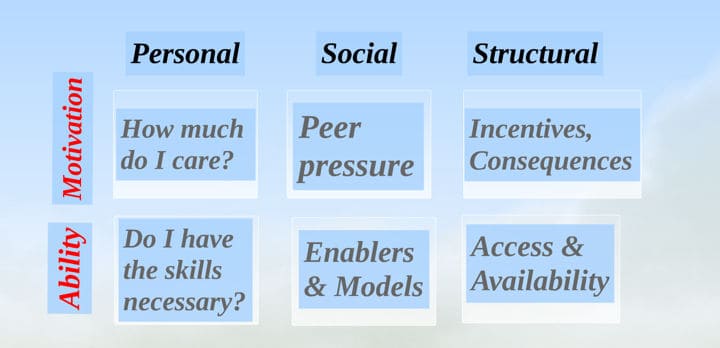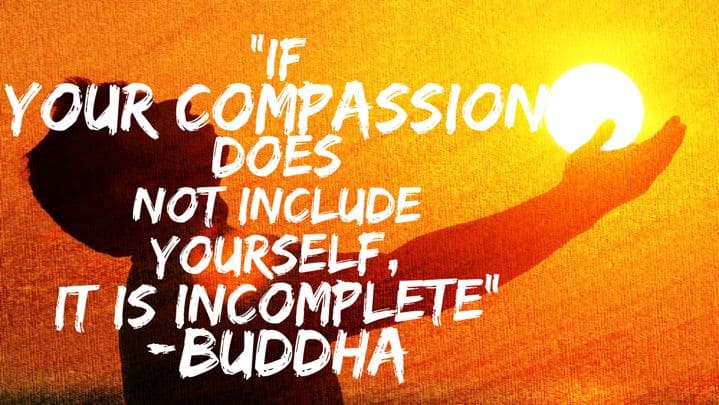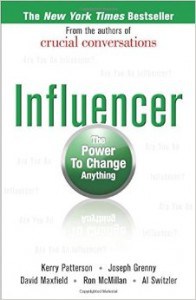“If your compassion does not include yourself, it is incomplete.” —Buddha
So… a lot of people have told me I’m really hard on myself. And they’re right!
“Ah, Kendel, you know better than that. Why’d you say that?” “You woke up at WHAT time? Pssh, pathetic.” “You missed your goal again today, when are you going to get it together?”
BUT
I’ve gotten a lot better. I’ve learned two reasons why all of us should stop being so hard on ourselves.
Reason # 1: It’s not all about you
It may be obvious to you, but it was kind of a surprise to me, that what you do… isn’t just about you.
What I mean comes from this excellent book, Influencer
It basically says that we have SIX sources of influence acting on our decisions, actions, and habits.

We’ve got personal motivation,personal ability, social motivation, social ability, structural motivation and structural ability. Personal motivation (what most of us default to as the sole reason why we succeed or fail) is important—essential even, but in the grand scheme of things, it is no match to fight all the other influences in your life. It’s a lie to think that the reason you’re failing is just because you’re weak. Often it’s because other areas of your life are not supporting your decisions
So before you criticize or blame yourself, first examine all the other areas influencing your life.
And that brings me to reason #2
Reason #2 You should rethink criticizing yourself at all
Stanford researcher Kelly McGonigal has compiled some studies that indicate that self-criticism puts you in a weakened mental state such that your brain is significantly more susceptible to falling back into the very negative behaviors you are trying to avoid.
She explains in her book that applying one deceptively-simple skill can maintain a higher level of willpower and lessen the chance of another willpower failure. That skill is simply self-compassion. Yep, even though we all know we should be nicer to ourselves, research shows that most of us consistently fail to talk positively to ourselves after a willpower failure, and negative internal dialog dramatically increases the likelihood that we will fail again.
If we want to maintain higher levels of willpower, McGonigal recommends saying to yourself things like
- “Everyone fails sometimes”
- “This is a natural part of the process to get better,” or
- Reminding yourself that one short-term failure doesn’t affect the overall big picture.
This approach was more effective in helping people to quit smoking than nicotine replacement therapy! So the next time you are tempted to be hard on yourself, see how much more resolve you have if you respond with self-compassion. It has done wonders for me.
This isn’t about “giving yourself a pass,” it’s about seeing reality: and the reality is that your personal determination—as important as that is—should not be seen as the sole contributor as to why you sometimes fail at things that are important to you. Pick yourself up, remind yourself that, you, too, are human, and look for ways to positively influence your behavior for next time.
If you want more tips for getting more out of life, be sure to subscribe to my YouTube channel and sign up for my Insider Tips email list.
Committed to your success,
Kendel
Sources:
Grenny, Joseph, Kerry Patterson, David Maxfield, Ron McMillan, and Al Switzler. Influencer: The New Science of Leading Change, Second Edition. 2 edition. New York: McGraw-Hill, 2013.
McGonigal, Kelly. The Willpower Instinct: How Self-Control Works, Why It Matters, and What You Can Do to Get More of It. Reprint edition. Avery, 2013.









